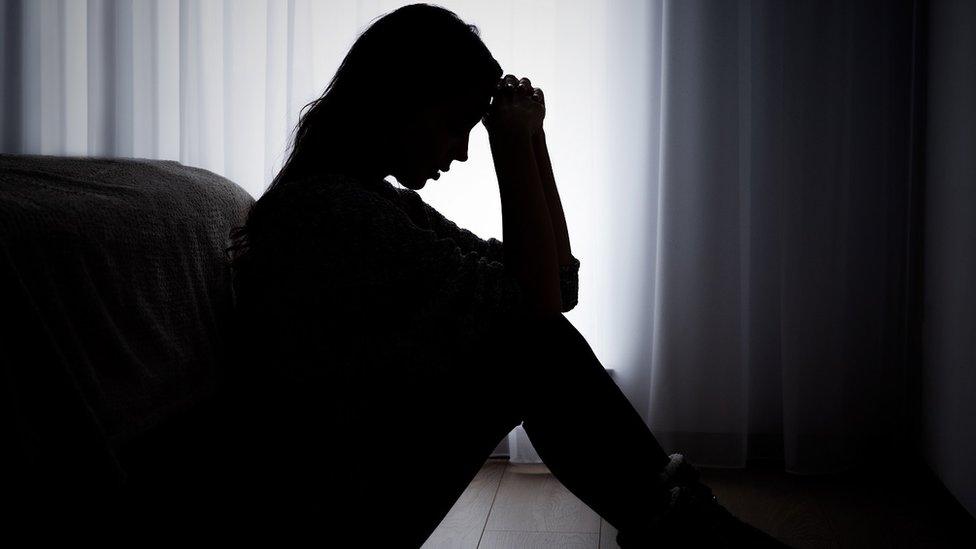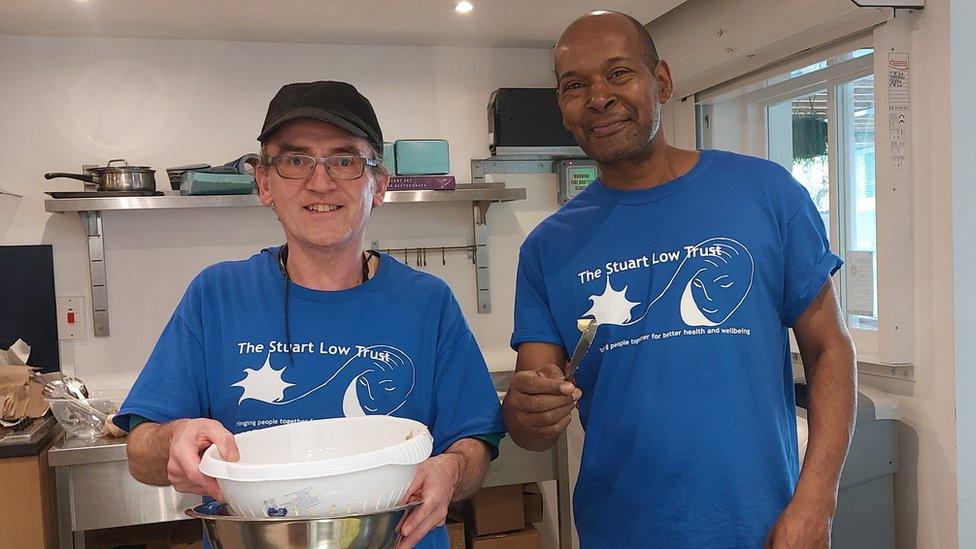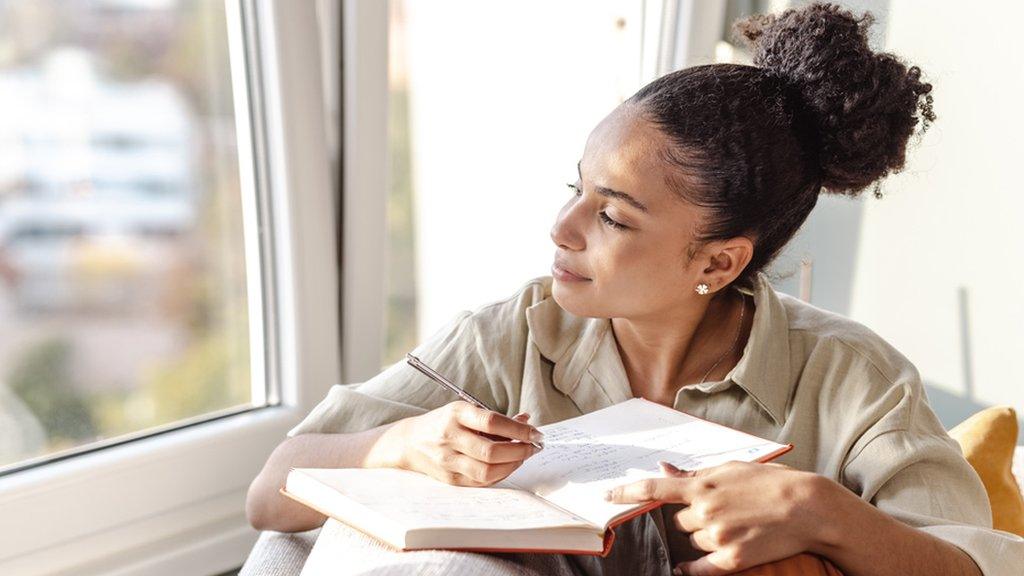'There is a crisis of social isolation in Islington'
- Published

The trust says people's isolation this Christmas will be made worse by the cost-of-living crisis
Islington is facing a "crisis of social isolation", a mental health charity in the London borough has said.
The Stuart Low Trust said the area had the "highest rates of serious mental health problems" in the capital.
It cited local deprivation, the dense population and a lack of green spaces as some of the reasons why.
It said the charity had identified a gap in local services and was working to help provide easily accessible support.
Lockdown 'like solitary confinement'
Speaking to the BBC anonymously, one service user of the trust explained how she had depression and anxiety, particularly since shielding alone during the pandemic.
She said lockdown was like being in "solitary confinement", adding: "It felt extremely lonely. I felt extremely anxious." She also described feeling suicidal.
Through her GP, she was referred to a social prescribing link worker, external who connected her to the Stuart Low Trust.
She told the BBC that the activities offered allowed her to meet people with whom she could be "honest" about her mental health condition.
She said that the social opportunity provided by the charity "lifts my spirits up", adding that it was important to be able to put dates into her diary to "have something to look forward to".

Staff at the Stuart Low Trust in the kitchen at one of its regular Friday night events
The charity offers access to safe spaces and community activities focusing on arts, nature and wellbeing. It is open to people outside Islington as well as residents.
It said events were running over the Christmas period to stop people from being alone.
CEO of the trust Mark Gillham told the BBC he felt there was a "gap in service" when it came to mental health support in Islington and across London.
He said: "You have to often fulfil quite complex criteria to be eligible for an NHS service."
Mr Gillham added: "The Stuart Low Trust's approach, by contrast, is that we are either a drop-in service, or they just simply need to fill in a brief registration form."
He said it was particularly important to support people out of hours, "when you can imagine people who are isolated, feel most isolated", adding that the charity helped about 1,000 people a year with 89% reporting improved mental health and wellbeing.

About one in six (30,000) Islington adults have depression, anxiety or both
Nearly 4,000 people in Islington are living with a serious mental illness

The increased demand for the charity's services has placed the trust under financial strain, however, with some activities being scaled back, external.
The charity has told service users this is a temporary problem, and it is hoping to boost funds with the release of a Christmas single, Guiding Star.
It said proceeds from the single, external would allow it to help those who were isolated.

A choir of Stuart Low Trust service users recording the charity's Christmas single
Speaking about Christmas, Mr Gillham said: "If you're isolated, it can be one of the most painful times of year, and you really just want Christmas to go away.
"So one of our aims is to bring people together over this period, so that they do have somewhere to go."
North London Mental Health Partnership, which includes Camden and Islington NHS Foundation Trust and Barnet, Enfield and Haringey Mental Health NHS Trust, said in a statement: "Our core services cover the whole range of mental health need and have received significant investment over the last three years, enabling us to offer even more high-quality, joined-up care and support to residents across north central London, whatever their level of need.
"This is often available by self-referral, including for example our Talking Therapies service.
"Importantly, our Crisis Services are available to whoever requires them, again without a GP referral, 365 days a year and 24 hours a day.
"They include two crisis houses in Islington, our mental health crisis assessment centre and our round-the-clock crisis lines on 0800 917 3333.
"Our formal and informal partnerships with the charity and voluntary sector are invaluable; they complement our services and we will continue to work closely with them."

Listen to the best of BBC Radio London on Sounds and follow BBC London on Facebook, external, X, external and Instagram, external. Send your story ideas to hello.bbclondon@bbc.co.uk, external
Related topics
- Published21 November 2023
